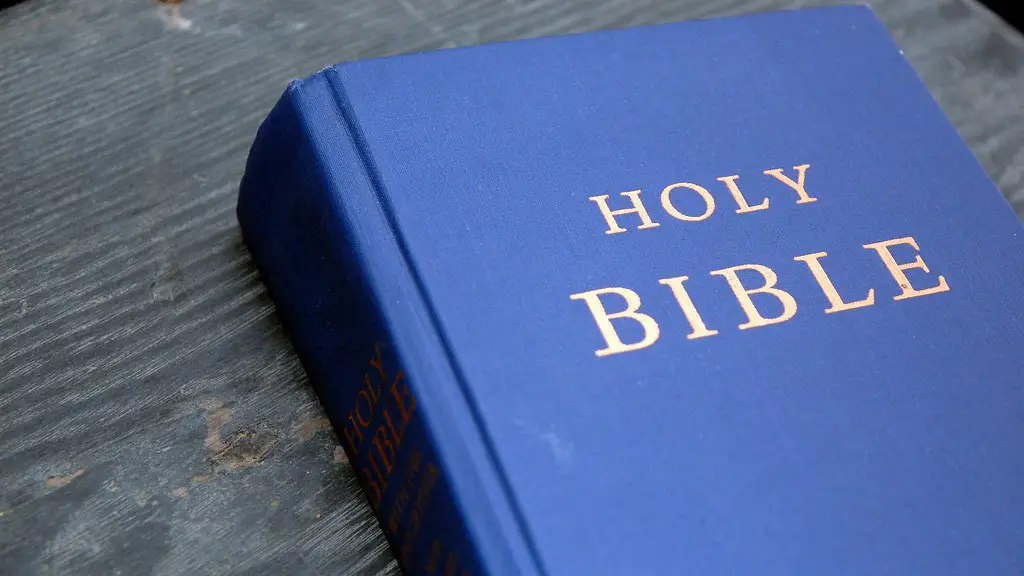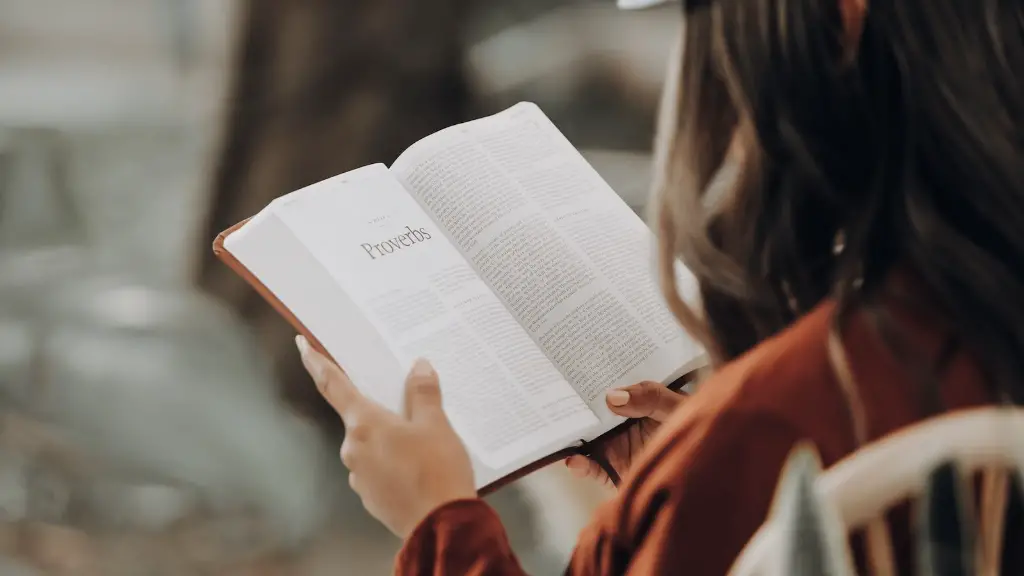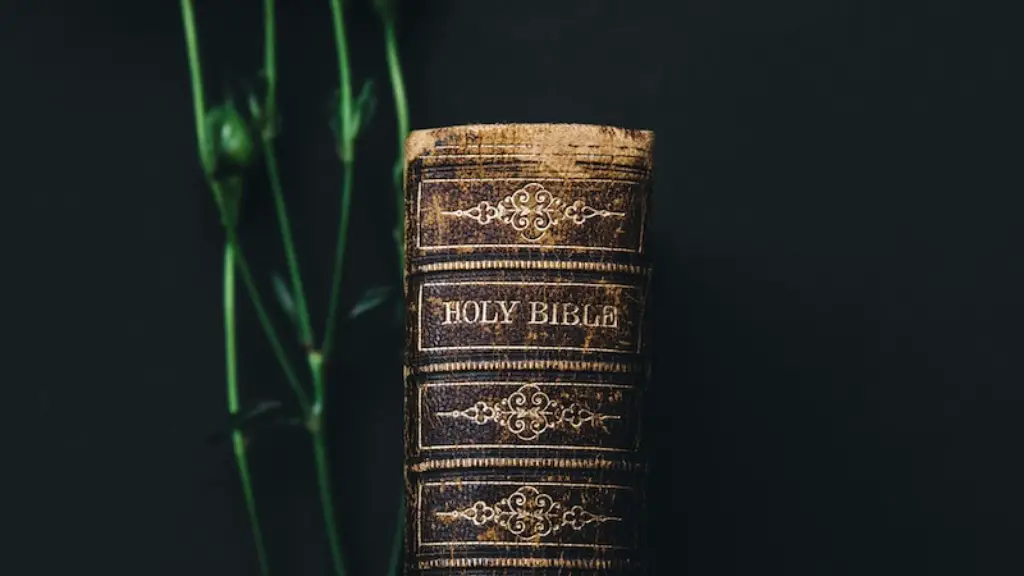Overview
Casting Lots is a practice that is mentioned over thirty times in the Bible, mainly in the Old Testament. It was a method used to determine the will of God through prayer and an element of chance. It involved drawing lots, or casting stones into a container, and interpreting the results. This practice, while still scientifically debated, is believed to have been used in settlement and decision-making, as well as to determine the guilt of an accused party. The Bible has many verses that demonstrate the actual and metaphorical use of casting lots.
History of casting lots
Casting lots dates back to ancient times and was frequently mentioned in early Jewish writings. It was believed to be an accepted practice in early Israel and was delegated mainly to priests. For example, the high priest was charged with the responsibility of casting lots for both humans and goats for various religious observances. According to The Bible History, casting lots and lots of stones was an accepted system to decide the fate of criminals in a variety of cases.
In the Christian Bible, the Book of Proverbs speaks of casting lots as a way of settling disputes. It says “Cast thy bread upon the waters, for thou shalt find it after many days,” while further on it reads “The lot is cast into the lap; But the whole disposing thereof is of the Lord,” (Proverbs 16:33, KJV). This may indicate that God has the ultimate say in the outcome of each casting.
Modern meaning
Modern-day Christians may interpret the practice of casting lots in a similar way as it was intended in the Bible. The practice is still seen as a way of making decisions and gaining knowledge that God has promised to reveal. It can also be seen as a form of surrender – to the Lord, who is ultimately in control.
However, some interpret casting lots in a more mystical way. For example, some interpret it as a way of accessing divine knowledge or enlightenment. The concept of seeking a decision from a higher figure such as God has created many spiritual and superstitious interpretations. Some believe that it transcends the limitations of human understanding and can only be revealed through supernatural intervention.
Therefore, the practice of casting lots is still interpreted in several ways, depending on the context and the people involved.
The Bible
In the Bible, casting lots was by far the most common method to determine the will of God. In some cases, it was used as a method of revealing information that could not be known otherwise. For example, in the book of Joshua, God told the Israelites to cast lots in order to decide which tribes would get which portions of land (Joshua 19:1-2).
In the New Testament, the disciples used this practice to decide who would replace Judas Iscariot (Acts 1:23-26). The Bible also demonstrates its use to decide the guilt of an accused person, the innocence of one whose life was in danger (Numbers 26:55) and the outcome of a contest between two contenders (1 Samuel 14). Through its numerous practices, the Bible shows us that God reveals His will and desires through a variety of means.
Theology of casting lots
The theological opinion of casting lots may differ from one denomination to another. But generally speaking, casting lots is not seen as a means of divination – a practice of predicting the future. While casting lots can sometimes reveal knowledge that is not humanly obtainable, it is still up to interpretation. Some interpretations may be subjective and more symbolic. Therefore, it is important to take the scripture that discusses casting lots and interpret it in context.
In addition, the practice of casting lots is generally seen as a way to determine a decision of faith, but not necessarily a foretelling of future events. Casting lots can be a reminder of the role God plays in our lives and that He alone has the power to determine the ultimate outcome of any situation.
Examples in Life
The concept of casting lots is associated with many aspects of life. It can be seen as a way of making decisions about what is important to us, and as an expression of faith. As an expression of faith, casting lots can be used to ask for guidance and make decisions that we would not otherwise be able to make.
In modern-day life, people use the practice of casting lots to make valuable decisions. From deciding who will lead a church group, to determining who will be a trial witness, to choosing which project to invest in – people have used casting lots to make a number of judgment calls.
Modern Methods of Casting Lots
People have adapted the practice of casting lots and replaced the physical method of stones or sticks in a container with modern methods. A variety of methods are used today and range from online prediction services to rolling dice. Whatever method a person chooses, the purpose is still to take a random chance and make a decision.
Some of the most common methods include flipping a coin, drawing straws, rolling dice, or using a digital randomizer. By using these methods, people can still engage in the practice without relying on an element of chance.
Significance of Casting Lots
The practice of casting lots still holds an immense level of importance and is still a subject of personal and spiritual reflections. Through casting, people can experience a level of guidance and insight that they may not be able to access naturally.
According to biblical and historical interpretations, casting lots is a reminder of the trust, faith, and belief that we have in the will of God, who ultimately has the final say in our lives. We cannot control the outcome of any given situation and have to surrender our lives to a higher figure – the Lord God.
Casting lots provides us with an opportunity to set our worries aside and make a decision with faith. It allows us to take a step back and remember that any given situation does not necessarily have to be controlled by human hands.
Conclusion
Casting lots has been used in the Bible for numerous situations and occasions. It has held importance in both religion and modern day life. The practice itself is not seen as a method of predicting the future but rather a reminder of the power that God has over our lives. While still quite debated, the practice of casting lots may provide some with guidance, support, and insight into what the future holds.


